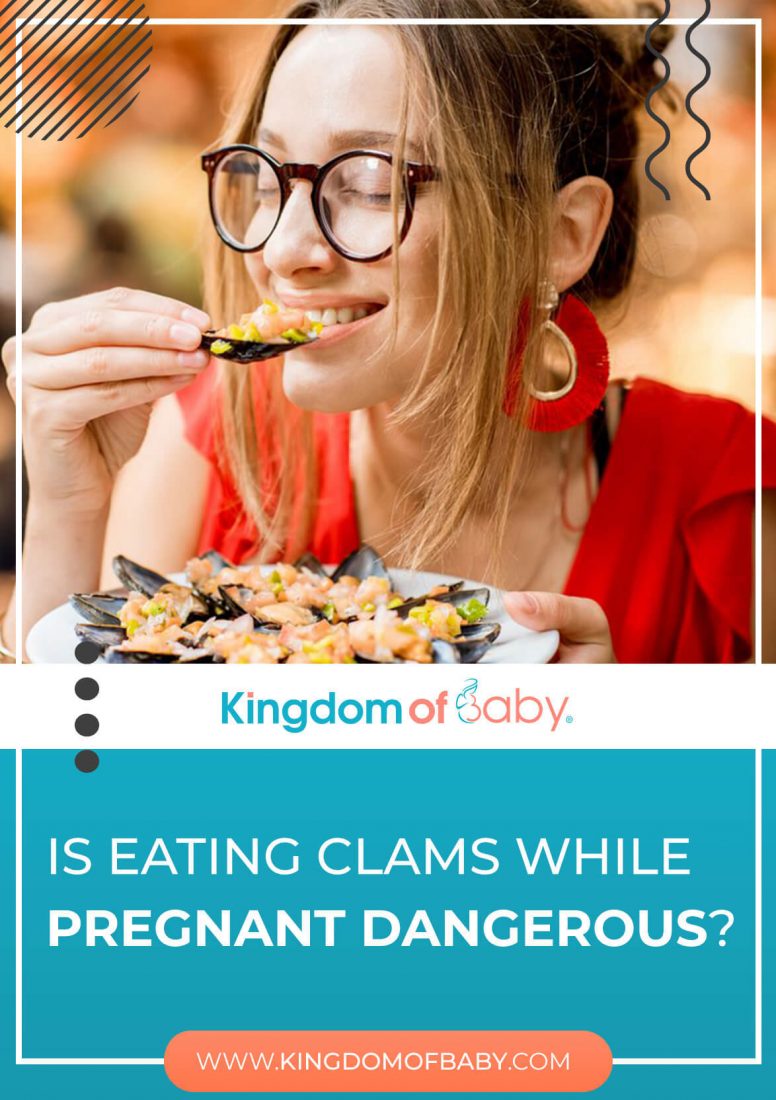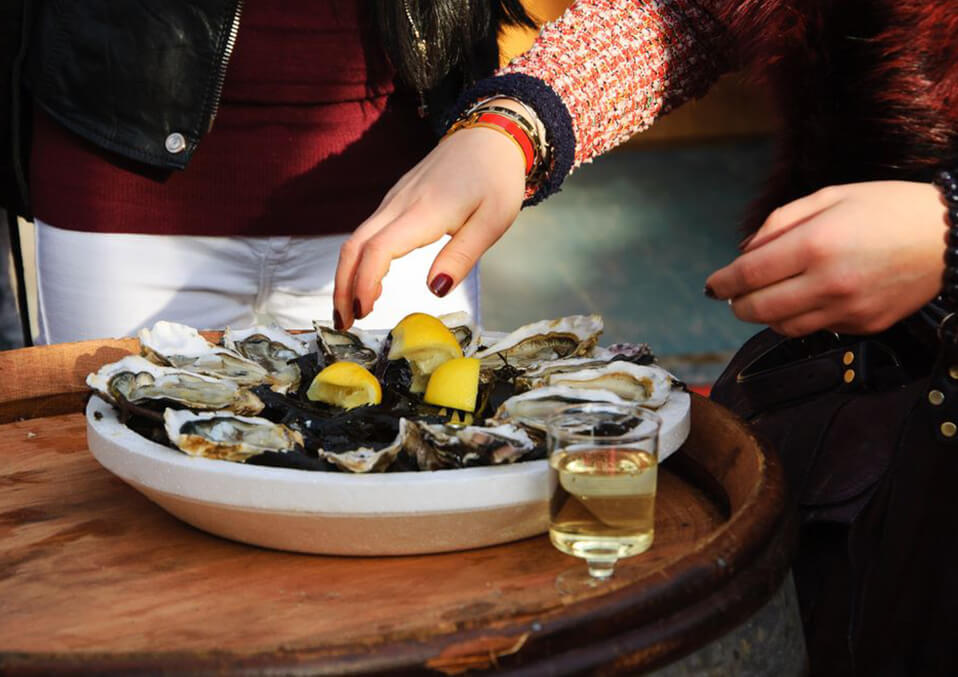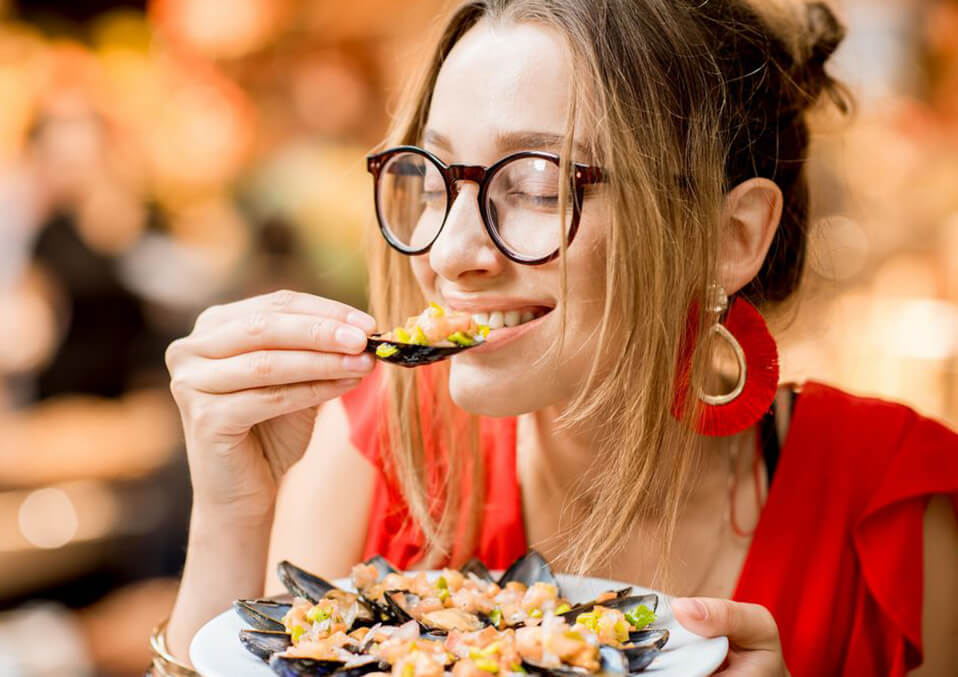
With its nutrient-rich content and earthy flavor, there is a lot of people that
are being hooked with eating clams. In can be prepared in several ways that may
give different flavor or vibe into it. With the different recipes that can be
made through clams, can we say that it is safe for consumption especially to
pregnant women? In this article, we’ll know more about clams and how it becomes
dangerous to the pregnancy.
Can pregnant women eat clams?

Pregnant women may eat clams and other seashells provided that are cooked properly. Clams are usually eaten raw, but it is not advisable for pregnant women because it may contain parasites and other bacteria that may cause food-borne illnesses such as salmonella. Some seashells may also contain high levels of mercury that is harmful to the fetus because its bodily development is affected.
Experts suggest that almost all seafood is safe to eat during pregnancy provided that they are cooked properly and that they are fresh. During cooking, make sure that its temperature reaches at least 63 degrees Celsius for you to be sure that it is already cooked. When prepared properly, the clam is a good source of omega-3 DHA, protein, iron and Vitamin D. Like any other foods that are suitable for pregnancy, it is also advisable to eat in moderation so that it may not cause any detrimental effects to you and your baby.
Benefits of shell-fish during pregnancy

- Omega-3 DHA
This is considered a healthy fat that assists in the development of the baby’s eyes and brain. There is a heightened need for this nutrient during the last trimester until the baby turns 2 years old. It is important that women have high levels of Omega-3 DHA after giving birth to prevent depression or postpartum depression.
Read also: Pregnancy diet can pregnant women eat mussels
- Protein
There is a high concentration of protein that can be seen in most shellfish including clams. Protein is needed during pregnancy because it is vital for the baby’s muscles, bones, hair, and skin. Pregnant women need at least 25 grams of protein per day.
- Vitamin D
This vitamin helps in the proper absorption of calcium that is essential for your baby’s teeth, bones, nerves and muscles and for the heart’s functionality. Vitamin also helps regulate blood pressure during and after giving birth.
Read also: Benefits of apple cider vinegar during pregnancy
- Iron
Aside from supporting the immunity of both the mother and the fetus, it also helps carry out oxygen into the baby through the bloodstream. Without iron, anemia in pregnancy is common.
- Choline
This vitamin-like compound is a good help for liver health and ensures that pregnant women are protected against fatty liver. The neurotransmitter, acetylcholine is made through choline that helps in the formation and maintenance of DNA, protein synthesis and for the production of the red blood cells.
- Vitamin B-12
A 100-gram serving of a clam is just enough to fill in the daily needed supply for Vitamin B-12. This vitamin is important for the formation and maintenance of DNA, protein synthesis and for the production of the red blood cells.
Read also: The diverse types of prenatal vitamins
- Vitamin C
It’s unusual for seafood to have Vitamin C because this nutrient is mostly common to fruits and vegetables. It is said that 22.2 grams of clams that were served or at least 6 ounces of serving is equivalent to at least 36% of the daily needed supply of Vitamin C.
How many clams can a pregnant woman eat?

Pregnant women can eat at least 12 ounces (340grams) of seafood or shellfish per week or 2-3 servings for 7 days. It is advisable to eat clams once a week and to have varying choices of seafood in a week.
Possible health risk problem a pregnant woman can have in eating clams
Allergy
Shell-fish allergies are common, you may not have allergies to them before you are getting pregnant but you may be allergic to some foods because of the hormonal imbalances that you may experience during pregnancy. You must do some allergic tests before indulging yourself into a heavy meal of clam recipes.
Food poisoning
Shellfish such as clams are prone to be infected by different toxins found on the bodies of water due to algae especially if the place where the clams were harvested is contaminated. Some toxins are sensitive to heat that is why it can be killed through cooking but some toxins have high resistance that is why as much as possible, do not eat clams if you are not sure where it came from.
Read also: Having an upset stomach during pregnancy is it something to worry about
Accumulation of heavy metals
Even though clams are rank second to the lowest seafood that contains less mercury contamination, it would still give out negative effects especially when taken in large amounts.
Tips in cooking clams:

- The clam cooks at about 63-74 degrees celsius. A properly cooked clam would change in color mostly more opaque. Also, the shell will open once it is cooked.
- It is advisable to consume fresh clams before there is a high possibility that the shell is more prone to different kinds of bacteria.
- Before preparing a clam for cooking, make sure that all of its shells are still closed. If their shells had been opened, it means that it is dead because of contamination or due to illnesses that is why when consumed, it may cause negatively to humans.
- It is no longer safe to eat those shells that remained closed after cooking because it may be spoiled prior to cooking.
- Before cooking, soak the live clams for 20 minutes in water so that they can clean themselves and remove the sand and salts that they have collected into their shells. Since there is sand on the bottom of the basin used, you pick it up one by one so that there will be no dirt that will be included if you will just pour it to the pot.
Read also:
- Risks of Drinking Alcohol During Pregnancy
- Blood Clotting in the Placenta During Pregnancy
- Pregnancy Diet Can Pregnant Women Eat Mussels


